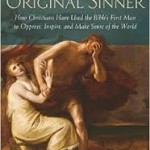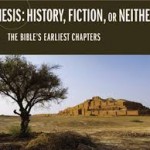 In chapter 6 of Sacred Word, Broken Word: Biblical Authority and the Dark Side of Scripture
In chapter 6 of Sacred Word, Broken Word: Biblical Authority and the Dark Side of Scripture, Sparks makes the following point: what he says about the Bible is not all that different from what others have said in the history of the church, even if he puts things his own way and applies them to different issues.
Citing John Wesley, “if the literal sense of these Scriptures is absurd, and apparently contrary to reason, then we should be obliged not to interpret than according to the letter, but to look out for a looser meaning” (p. 51).
Sparks cites Orations 5.25 of the 4th century Greek Church Father Gregory of Nazianzus (329-90). Speaking of Israel adopting pagan notions of animal sacrifice, he says that God “partly removes and partly condones ancestral habits” (drawing an analogy from doctors who blend medicine with something “nice” so the patients will take it).
In other words, God accommodates to the realities of ancient culture. As Sparks puts it, “God consented to inferior and errant practices in Scripture because humanity was not prepared to manage their sudden elimination” (p. 52).
Justin Martyr (100-165) in Dialogue with Trypho 18.21 comments on Scripture
 specifically in the same vein. In debating the Jew Trypho, Justin argues that circumcision, Sabbaths, and festivals were a concession on God’s part because of Israelite sin and hardness of heart (see Sparks, p. 52).
specifically in the same vein. In debating the Jew Trypho, Justin argues that circumcision, Sabbaths, and festivals were a concession on God’s part because of Israelite sin and hardness of heart (see Sparks, p. 52).
Curiously, Justin found biblical warrant for this in Ezekiel 20:25, which says that God gave the Israelites “laws that were not good.” However one might handle this verse (I think the focus is on child sacrifice, but that is another 10 post series), the only point Sparks wants to make is how Justin and others reasoned through some aspects of the Old Testament.
Taken together, Gregory and Justin can easily be understood as saying: Scripture’s discourse is adapted to and reflects human sinfulness, and these fallen elements of biblical religion were gradually eliminated during the redemptive process (p. 52).
Sparks continues by pointing out how Calvin, along with Wesley, recognized that the Bible “could sometimes have the facts wrong” (p. 52). (For example, Calvin famously quipped that Genesis 1 is not accurate science but reflects ancient knowledge of the heavens.) These errors were God’s wise accommodations or condescensions to human limitations of the ancient Israelite culture.
Sparks distances himself from Calvin, who regarded the human authors of Scripture as “colluding partners in the act of accommodation” (p. 53). In other words, the authors knew better than their readers; God let them in on the need to accommodate. Instead, Sparks rightly argues that God is already accommodating the human authors. They do not “know better.” The were writing as ancient people, not simply for ancient people.
To put all this another way, God “allowed his human authors the freedom to be precisely who they were when they wrote Scripture” (p. 54). They are not removed from their point in time, but are met by God where they are and wrote as they are.
 This is the kind of Bible we have, and earlier voices of the church seemed to have had a handle on it. No, they are not saying exactly what Sparks says, and there is no way of knowing, one way or the other, whether Calvin or Justin would agree with Sparks’s way of putting it if they were alive today.
This is the kind of Bible we have, and earlier voices of the church seemed to have had a handle on it. No, they are not saying exactly what Sparks says, and there is no way of knowing, one way or the other, whether Calvin or Justin would agree with Sparks’s way of putting it if they were alive today.
But the figures of the past are not here to ask, and even if they were transported to our present day, they would not be the final judge and jury. They would need to play catch up and see how some of their own trajectories are being applied today, and more importantly the pressing reasons why such application is necessary.
If anything, Sparks’s chapter, as necessarily brief as it is, counters the Evangelical meme that defenders of inerrancy today–at least those who say that Scripture is perfect, regardless of whether we perceive it as such–are simply carrying forward the universal posture of the church throughout time.
Rather, Scripture contains real problems, not imagined ones.










